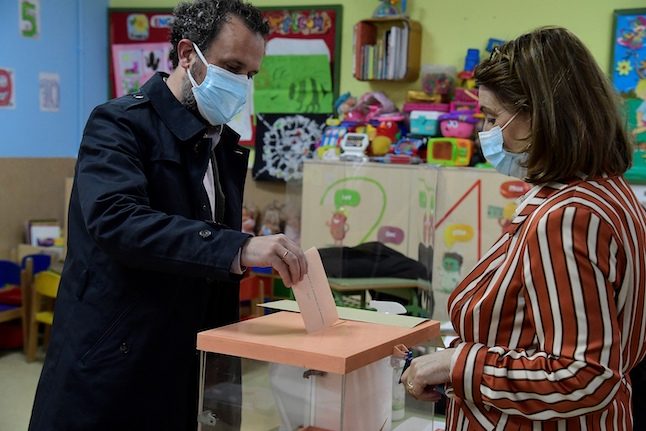EU citizens
EU citizens living in Spain can vote in local and European elections, and can even be elected as mayors and local councilors. EU citizens who live in another EU member state can vote or stand or run in local and European elections across the block, but cannot vote in national or general elections.
This means that any EU citizen resident in Spain may vote in local or European elections, provided they are registered on the population census and have signed the appropriate voting paperwork.
Non-EU citizens
Generally speaking, if you’re a non-EU citizen, you cannot vote in elections in Spain or in the EU. However, according to Spain’s National Statistic Institute (INE), Spain does have bilateral agreements with Norway, Iceland, Bolivia, Cape Verde, Chile, Colombia, Ecuador, New Zealand, Peru, Paraguay, South Korea, Trinidad and Tobago, and now the UK.
British citizens
There has been some confusion and misinformation regarding the voting rights of British citizens in Spain following Brexit. According to Spanish government guidelines, Spain and the UK have an agreement on mutual recognition of the right to vote and stand in local elections.
British citizens residing in Spain are still entitled to vote and stand for municipal elections in Spain under similar conditions as they had been able to when still European citizens.
READ MORE: Spain enshrines in law voting rights for UK residents in local elections
Following Britain’s withdrawal from the European Union, however, British citizens now do not have the right to vote in elections to the European Parliament, and still can’t vote in national/general elections.
Interestingly, while many might think this is somewhat of a bespoke arrangement for Brits, in reality, it isn’t, it’s similar to the bilateral agreements Spain has with the countries mentioned above.
Americans
Like most other non-EU citizens from countries that Spain does not have special agreements with, Americans cannot vote in municipal, European or general Spanish elections.
The only way that American residents living in Spain would be able to vote is if they have lived in Spain legally for 10 years and take their Spanish citizenship test.
READ ALSO – Quiz: Can you pass the Spanish citizenship test?
How to register to vote in Spain
Only people included on the padrón municipal at the local town hall may vote. To be included on the register, visit your local ayuntamiento with the following documents:
- your passport
- proof of address (you can use a utility bills or rental contract or similar)
- a completed registration form known as a volante de empadronamiento.
You can access the registration form via your local city or town hall website.
The process is free, and once you are registered you should visit the ayuntamiento again to declare your desire to vote. Just being on the register does not grant you voting rights, so you must actively declare in order to be included on the electoral roll.
What if I was born in Spain to foreign parents?
According to Spain’s civil code, in order to be granted Spanish citizenship one parent must have citizenship – or both parents must be stateless – at the time of your birth, regardless of whether or not you were born in Spain.
This means that you do not have Spanish citizenship or the right to vote in general elections just because you were born here.
Legally speaking, in Spain the rules are on basis of jus sanguinis (Latin for right of blood), rather than jus soli (Latin for right of the soil) when it comes to citizenship and voting rights.
READ ALSO: How children born in Spain to foreign parents can obtain Spanish nationality
This is a surprisingly common problem in Spain: according to figures from the National Institute of Statistics (INE) collected in the 2018 Immigration Report over 500,000 people in Spain do not have Spanish citizenship despite being born in the country.



 Please whitelist us to continue reading.
Please whitelist us to continue reading.
Member comments